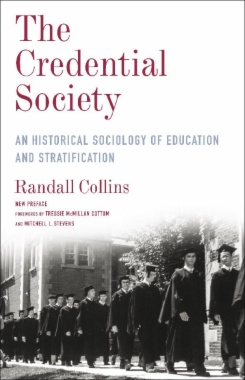The Credential Society is a classic on the role of higher education in American society and an essential text for understanding the reproduction of inequality. Controversial at the time, Randall Collins’s claim that the expansion of American education has not increased social mobility, but rather created a cycle of credential inflation, has proven remarkably prescient.
Collins shows how credential inflation stymies mass education’s promises of upward mobility. An unacknowledged spiral of the rising production of credentials and job requirements was brought about by the expansion of high school and then undergraduate education, with consequences including grade inflation, rising educational costs, and misleading job promises dangled by for-profit schools. Collins examines medicine, law, and engineering to show the ways in which credentialing closed these high-status professions to new arrivals. In an era marked by the devaluation of high school diplomas, outcry about the value of expensive undergraduate degrees, and the proliferation of new professional degrees like the MBA, The Credential Society has more than stood the test of time. In a new preface, Collins discusses recent developments, debunks claims that credentialization is driven by technological change, and points to alternative pathways for the future of education.
- Table of Contents
- Preface to the Legacy Edition
- Foreword, by Tressie M. Cottom
- Foreword, by Mitchell L. Stevens
- 1. The Myth of Technocracy
- 2. Organizational Careers
- 3. The Political Economy of Culture
- 4. The United States in Historical Time
- 5. The Rise of the Credential System
- 6. The Politics of Professions
- 7. The Politics of a Sinecure Society
- References
- Index

